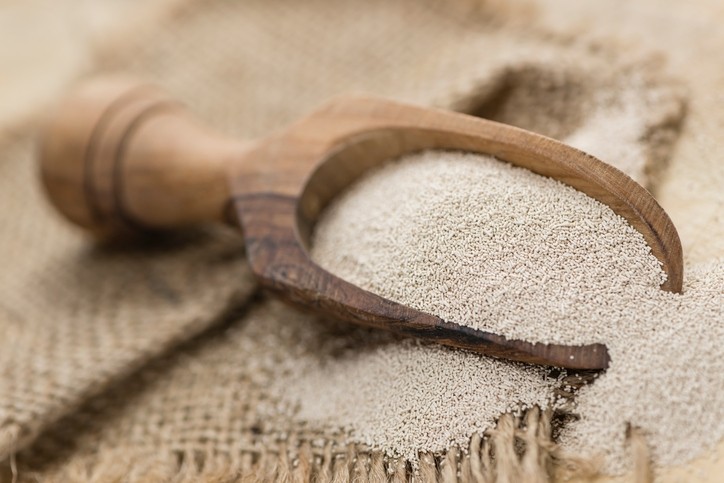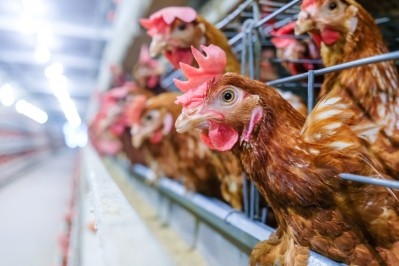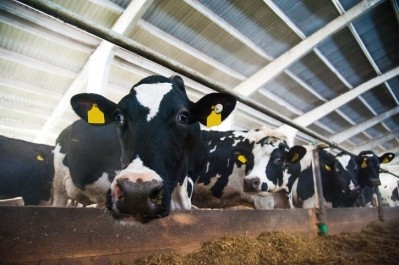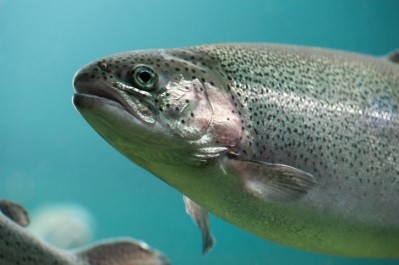Live yeast supplements may boost cow pregnancy rates in hot weather

An international team of researchers from the Livestock Research and Extension Branch of Alberta Agriculture and Forestry in Canada and the College of Agriculture and Natural Resources at the University of Tehran in Iran explored the use of live yeast as a dietary supplement to support dairy cows reproduction.
The team published its work in the journal Theriogenology.
“The objective of the first experiment was to investigate if a diet supplemented with live yeast would affect hormone profile and ovarian follicular dynamics in transition dairy cows,” the researchers said. “The second experiment was conducted to investigate the effect of yeast supplementation on reproductive performance of dairy cows at the herd level.”
In a series of feeding trials, the researchers found that the yeast additive supported increased plasma concentration of glucose, insulin and insulin-like growth factor-I (IGF-I) and the development of larger ovulatory follicles. The supplement also supported an increased percertage of pregnancy.
“Cows fed diets supplemented with yeast had greater plasma IGF-I, E−17β [estradiol-17β] and P4 [progesterone] concentrations, larger ovulatory follicles, shorter estrous cycles, and improved reproductive performance,” they said. “Therefore, live yeast dietary supplementation could enhance lactating dairy cow's fertility during heat stress through improvement in hormonal profile and development of larger ovulatory follicles.”
Why add yeast to cow diets?
The transition period – from about 21 days before and after calving – can be a stressor for cows and metabolically challenging, the researchers said.
Energy needs for milk yield, growth and maintenance are not completely provided by feed and cows have a negative energy balance.
Heat stress can negatively influence reproduction and production in dairy cows and remains a concern for producers, they said. “During high ambient temperature, energy demand is increased to maintain homeothermic regulation [12]; this energy demand is further increased in transition cows, thereby declining the efficiency of feed consumption,” they added.
Nutritional methods to improve nutrient use and ease the potential for metabolic disorders or reproductive failure while supporting high milk yield in cows facing heat stress would improve results for producers in warm climates, they said.
The use of live yeast as a supplement for dairy cow diets has been explored in relation to rumen function, production efficiency, health and feed behavior, the researchers said. However, little has been done to examine the interaction of live yeast supplements on dairy cow reproduction during heat stress.
“The few studies that investigated the effects of diets supplemented with live yeast on the reproductive measures of dairy cows were carried out with marginal number of cows and, hence, results may be confounded with cow-to-cow variations,” they added.
Methods and materials
In the first of two feeding trials, 12 dairy cows were given one of two diets from 21 days before anticipated calving date through 8 weeks postpartum, the researchers said. The TMR diets included a control, and that diet supplemented with 4g yeast/h/d of a commercially available live yeast.
“Diets were formulated to meet or exceed the requirements for energy, protein, minerals, and vitamins for a lactating cow of 650 kg of body weight and producing 45 kg of milk,” they said.
Cows were assessed for levels of glucose, insulin, insulin-like growth factor-I (IGF-I), progesterone (P4) and estradiol-17B (E-17B) in plasma and ovarian follicular dynamics were monitored, they said. Blood samples were taken on day -14, at calving, 14, 28 and 60 along with the first day of estrus and 10d post estrus.
In the second trial, 150 primiparous and multiparous cows received the same two diets from day 1 to day 70 postpartum, the researchers said. They were tracked for preganancy rate.
Results
In the first feeding session, cows getting the yeast supplement had higher plasma concentrations of IGF throughout the study and of insulin and glucose on day 60 postpartum compared with those on the control diet, the researchers said.
Plasma levels of E-17B at estrus and P4 by day 10 of estrous also were elevated in cows on the supplemented diet.
Cows receiving the yeast additive developed larger ovulatory follicles and started their estrous cycle more quickly than those in the control group, they said.
“We suggest that the effect of yeast supplementation on estrous cycle length could have been for an improvement in the metabolic status of cows fed supplemented diets,” they added.
In the second trial, the group of cows receiving the supplemented diet had a higher proportion of pregnant cows at 120 and 150 days postpartum, the researchers said.
The supplemented cows also had an average of 24 days fewer open.
“We suggest that the aforementioned observations such as larger ovulatory follicles, greater circulation of steroid hormone and improved metabolic status have all contributed to the better reproductive performance of cows fed diets supplemented with yeast,” they added.
Source: Theiogenology
Title: Effects of live yeast dietary supplementation on hormonal profile, ovarian follicular dynamics, and reproductive performance in dairy cows exposed to high ambient temperature
Authors: A. Nasiri, A. Towhidi, M. Shakeri, M. Zhandi, M. Dehghan-Banadaky, M. Colazo
DOI: doi.org/10.1016/j.theriogenology.2018.08.013
















